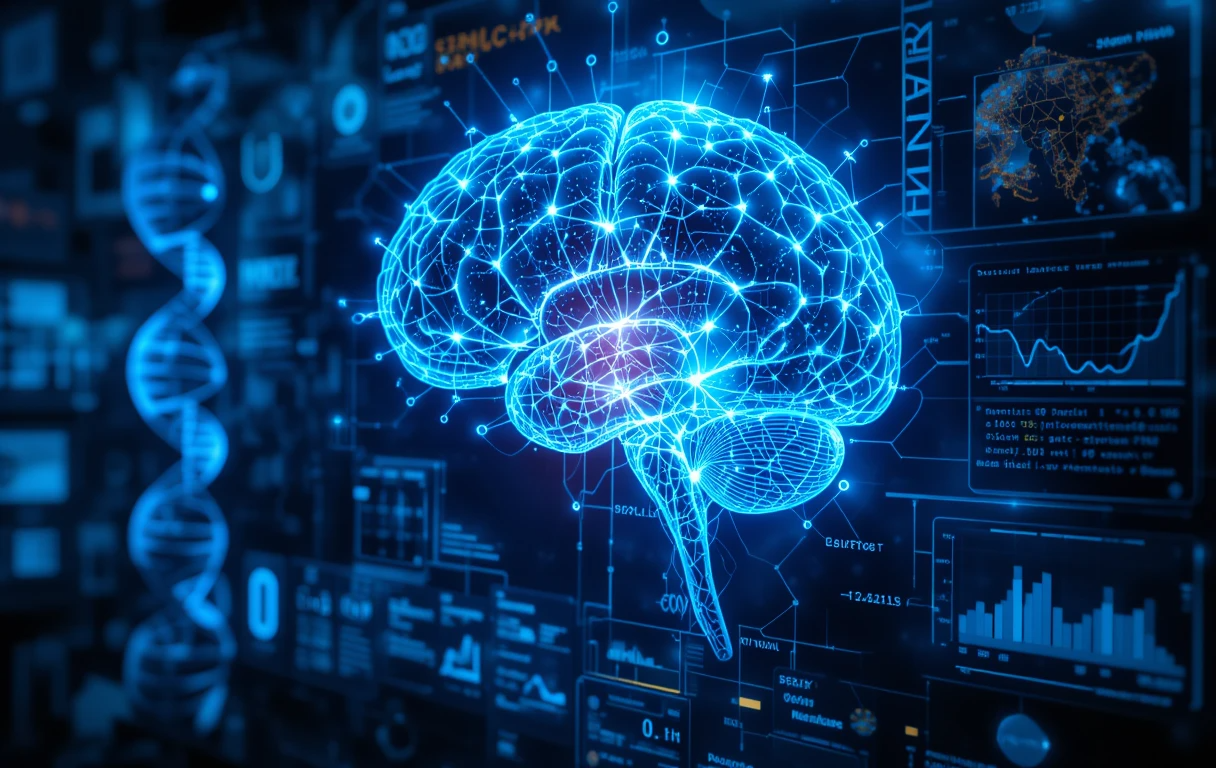Mental health issues have reached epidemic proportions, affecting millions worldwide. In the past decade, science and technology have made extraordinary leaps in understanding the brain and its intricacies. One of the most promising frontiers is biotechnology, which is revolutionizing mental health treatment and reshaping how we heal the mind. But can science truly heal the mind? This is the question we’ll explore in this in-depth analysis of biotech’s role in mental health care.
Introduction: A Silent Global Crisis
Mental health disorders like depression, anxiety, PTSD, and bipolar disorder affect over 1 billion people globally, according to the World Health Organization (WHO). Despite this staggering number, stigma, limited treatment options, and an incomplete understanding of the brain have left millions suffering in silence.
This is where biotech innovations in mental health come into play. Biotech combines biology, technology, and cutting-edge research to address some of the most complex challenges in mental health. From decoding brain activity to personalizing treatment, science is on the brink of transforming how we diagnose, treat, and even prevent mental illnesses.
Let’s dive into the groundbreaking advancements in the biotech of mental health and how they’re bringing hope to millions.
The Role of Biotech in Mental Health
Biotechnology in mental health focuses on applying cutting-edge research in genetics, neuroscience, and molecular biology to understand and treat mental illnesses. Unlike traditional “one-size-fits-all” approaches to mental health care, biotech aims to provide:
- Precision Medicine: Personalized treatments based on an individual’s genetic and biological makeup.
- Improved Diagnosis: AI-driven tools and biomarkers to detect mental health conditions earlier and with greater accuracy.
- Targeted Therapies: Innovations like gene therapy and neurostimulation to address the root causes of mental disorders.
These approaches are not just theoretical; they’re already making an impact.
Precision Medicine: A Game Changer for Mental Health
Imagine a world where treatments for depression or anxiety are as unique as your DNA. Precision medicine, one of the most exciting areas in biotech, uses genetic information to tailor therapies to each individual.
Recent studies have revealed that genetic variations can influence how a person responds to antidepressants or antipsychotic medications. Companies like 23andMe and Genomind are offering genetic testing kits that analyze DNA to predict drug compatibility, reducing the frustrating trial-and-error process of finding the right medication.
For example, someone with a specific gene mutation may metabolize certain antidepressants too quickly, rendering them ineffective. With precision medicine, doctors can prescribe a drug that’s more likely to work, improving outcomes and reducing side effects.
Neurostimulation: Healing the Mind with Technology
Biotech is also exploring how technology can directly interact with the brain to alleviate mental health conditions. Neurostimulation techniques like transcranial magnetic stimulation (TMS) and deep brain stimulation (DBS) are becoming increasingly popular for conditions like severe depression and OCD.
- TMS uses magnetic fields to stimulate nerve cells in the brain, helping to regulate mood and behavior.
- DBS, on the other hand, involves implanting electrodes in specific brain regions to modulate abnormal activity.
Although these treatments sound like something out of science fiction, they’ve shown remarkable success in clinical trials and are already FDA-approved for certain conditions.
The Promise of Psychedelics in Mental Health
In recent years, psychedelics like psilocybin (found in magic mushrooms) and MDMA have garnered significant attention in the biotech world. Once dismissed as recreational drugs, these compounds are now being studied for their potential to treat depression, PTSD, and addiction.
- Psilocybin therapy: Research shows that a single dose of psilocybin, combined with psychotherapy, can provide long-lasting relief for treatment-resistant depression.
- MDMA-assisted therapy: The FDA has granted “breakthrough therapy” status to MDMA for PTSD, fast-tracking its development.
Biotech companies like Compass Pathways and MAPS Public Benefit Corporation are leading the charge in this new era of mental health treatment, backed by rigorous science and clinical trials.
AI-Powered Diagnosis: The Future of Mental Health Care
Artificial intelligence (AI) is another key player in the biotech of mental health. By analyzing vast amounts of data, AI can identify patterns in brain activity, speech, and behavior that may indicate mental health conditions.
- Apps and wearables: Biotech startups like Mindstrong Health are developing apps that use AI to monitor smartphone usage patterns and detect early signs of mood changes or cognitive decline.
- Biomarkers: Researchers are discovering biological markers that can indicate conditions like schizophrenia or Alzheimer’s, making diagnosis more objective and accurate.
These innovations could help reduce misdiagnosis and ensure patients receive the care they need sooner.
Overcoming Barriers to Biotech Adoption
While the potential of biotech in mental health is immense, several challenges remain:
- Cost: Advanced treatments like genetic testing and neurostimulation are often expensive, limiting access.
- Stigma: Despite progress, mental health stigma still prevents many from seeking help.
- Regulatory Hurdles: Bringing biotech treatments to market requires extensive testing and approval processes, which can delay access.
Nevertheless, with continued investment and advocacy, these barriers can be overcome.
The Biotech of Mental Health
The biotech of mental health represents a bold new chapter in the fight against mental illnesses. By leveraging advances in genetics, neuroscience, and technology, we’re closer than ever to understanding the complexities of the mind and developing effective treatments.
While there’s still much work to be done, the progress so far is a testament to the power of human ingenuity and resilience. Science may not have all the answers yet, but it’s giving us something invaluable: hope.
Conclusion
The biotech of mental health is a rapidly evolving field that holds immense promise for transforming lives. From precision medicine to neurostimulation, these advancements are rewriting the story of mental health care. By addressing both the biological and emotional aspects of mental illness, science is not just healing the mind—it’s restoring hope.




